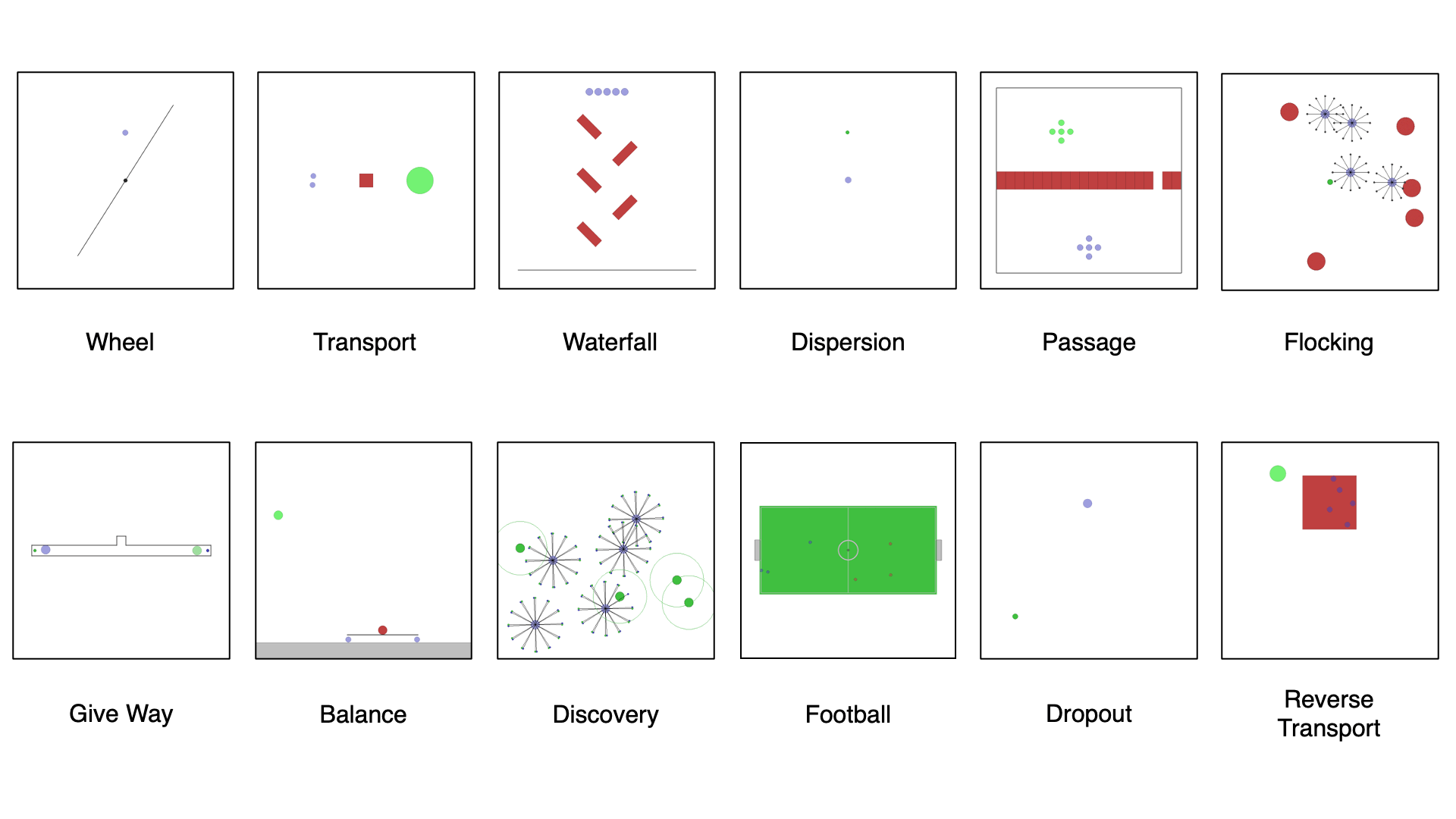VMAS: A Vectorized Multi-Agent Simulator for Collective Robot Learning

Abstract
While many multi-robot coordination problems can be solved optimally by exact algorithms, solutions are often not scalable in the number of robots. Multi-Agent Reinforcement Learning (MARL) is gaining increasing attention in the robotics community as a promising solution to tackle such problems. Nevertheless, we still lack the tools that allow us to quickly and efficiently find solutions to large-scale collective learning tasks. In this work, we introduce the Vectorized Multi-Agent Simulator (VMAS). VMAS is an open-source framework designed for efficient MARL benchmarking. It comprises a vectorized 2D physics engine written in PyTorch and a set of twelve challenging multi-robot scenarios. Additional scenarios can be implemented through a simple and modular interface. We demonstrate how vectorization enables parallel simulation on accelerated hardware without added complexity. When comparing VMAS to OpenAI MPE, we show how MPE’s execution time increases linearly in the number of simulations while VMAS is able to execute 30,000 parallel simulations in under 10s, proving more than 100x faster. Using VMAS’s RLlib interface, we benchmark our multi-robot scenarios using various Proximal Policy Optimization (PPO)-based MARL algorithms. VMAS’s scenarios prove challenging in orthogonal ways for state-of-the-art MARL algorithms.
Scenarios
